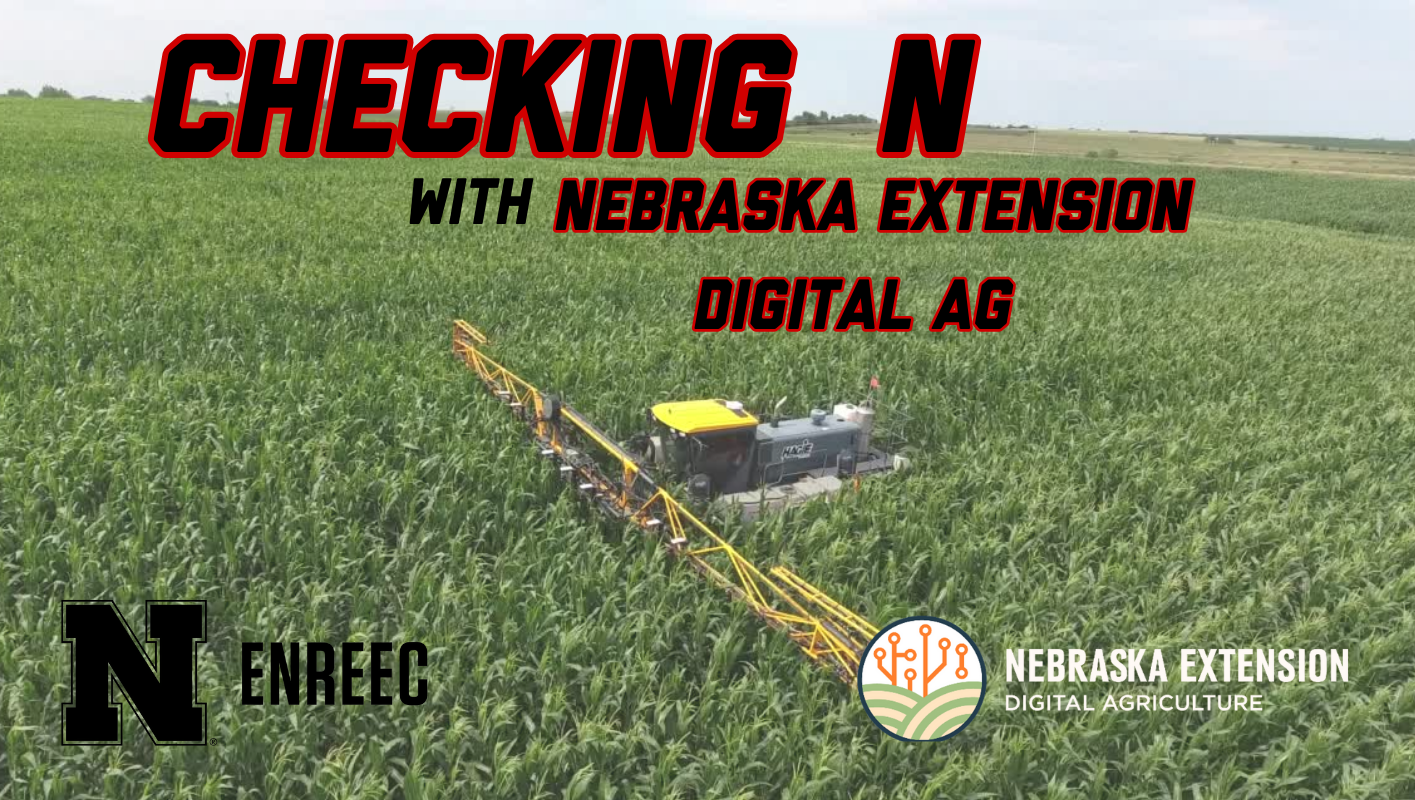NFarms Feature...
NRATE Project
NFarms Feature - NRATE
The Nitrogen Research for Agriculture Transformation and Enhancement (NRATE) project aims to increase on-farm productivity and profitability through innovative fertilizer research trials in grain crops. Reducing costs and volume while minimizing losses to the environment are the central goals of the NRATE project.
NRATE Research Update
The NRATE research team will provide regular updates on this web page. Learn from the people conducting the research and find out about technologies farmers will be able to utilize and are currently utilizing in their own fields.
The Checking N series provides weekly insights on tools, methods and impact found through University of Nebraska nitrogen management research. Learn about the Nitrogen Research for Agriculture Transformation and Enhancement (NRATE) project and other timely topics. Our goal is to help growers discover ways that our findings could work in their operations.
Checking N
The Checking N series provides weekly insights on tools, methods and impact found through University of Nebraska nitrogen management research.

NRATE - The Big Picture
The Nitrogen Research for Agriculture Transformation and Enhancement (NRATE) project aims to increase on-farm productivity and profitability through innovative fertilizer research trials in grain crops. Reducing costs and volume while minimizing losses to the environment are the central goals of the NRATE project.
In the last century, improved agricultural management has enabled the ag sector to keep up with increasing global food demand. The use of nitrogen (N)-based fertilizers, conservation tillage practices and more diverse cropping systems enable crop production with less land area while enhancing soil carbon (C) storage.
Fertilizer use, however, has contributed to both direct and indirect losses of reactive nitrogen (N) to the environment. N loss contributes to air, water, and soil pollution. And N losses are expected to increase due to climate change and as more organic and inorganic N forms are added to agricultural systems to meet growing production demands.
Finding the right balance Feeding the world while protecting the environment
Advances in technology are key to finding solutions. NRATE takes a 3-prong approach to tackling N loss issues through technology. Specifically, this project integrates and assesses:
1) Sensor-based, data-driven precision nutrient application techniques, adapted to microclimate and soils within Nebraska
2) Soil amendments that include Enhanced Efficiency Fertilizers (EEFs)
3) Conservation and regenerative practices (such as cover crops and grass strips) to increase carbon sequestration and reduce the release of nitrous oxide and other greenhouse gases
NRATE seeks to find data-driven solutions to evaluate conventional versus innovative N management practices. The goal is to enhance nitrogen use efficiency, improve crop productivity, and mitigate for weather extremes and climate change. Equally important, is reducing agriculture’s environmental footprint. Research includes N leaching and runoff, gas fluxes (N2O, H2O and CO2), soil health, soil microbes and other indicators under rainfed and irrigated systems.
Environmental and economic outcomes are accessed and shared so that farmers can adopt the enhanced practices in their operations.
Leveraging Partnerships and Resources
The NRATE transdisciplinary team leverages existing research infrastructure with education, extension and outreach expertise. Partnerships with the USDA Ag Research Service (ARS) local teams and the Long Term Agroecosystem Research (LTAR) integrates ongoing efforts with innovative, novel approaches to nutrient management.
Research efforts are leveraged to support existing Extension and Engagement activities with stakeholders including:
1) To establish continuously-operating demonstration field sites to highlight outcomes of the integrated approaches to nutrient management.
2) To communicate the conditions under which proposed innovations will drive existing practices from the market, co-exist with existing practices, or be ineffectual.
3) To promote positive nutrient management practice changes by partnering in on-farm research.

